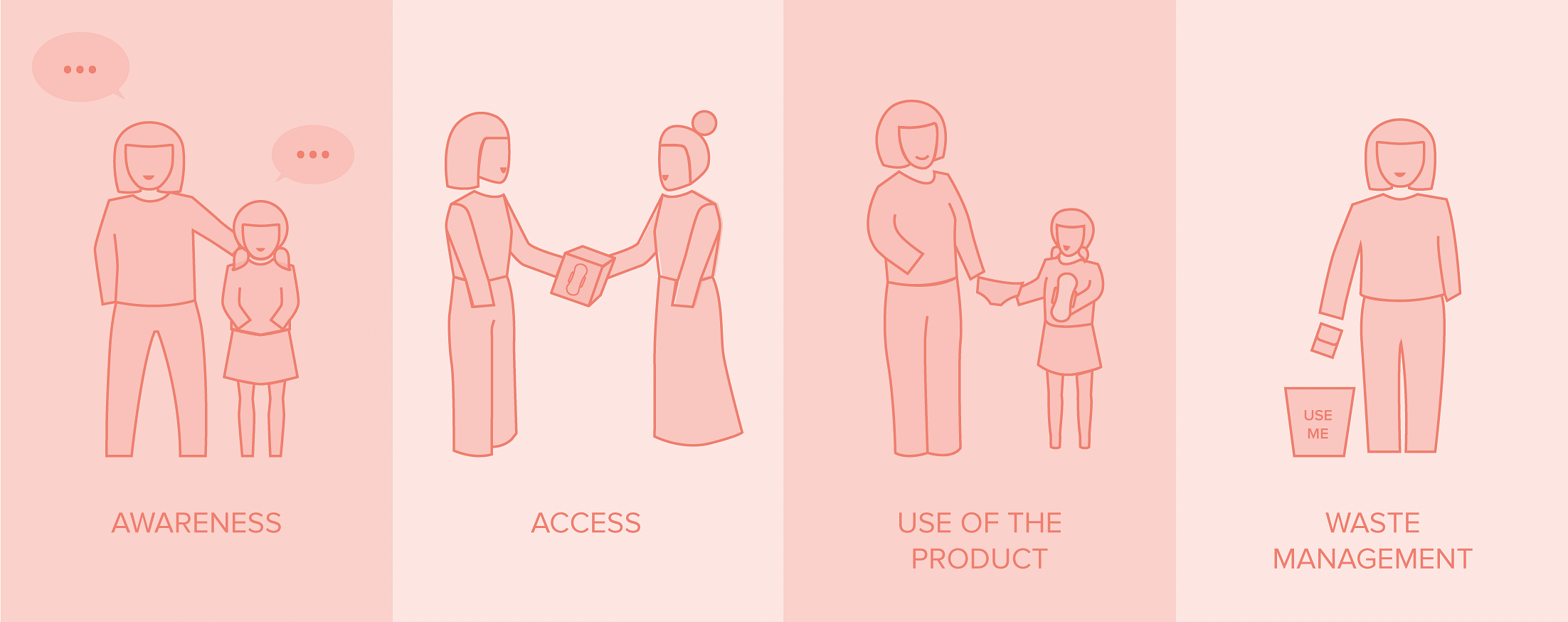We have always emphasised on the importance of menstrual hygiene in a woman’s life. It is an essential part of any woman’s life. While we have shared with you several tips and ways to ensure proper hygiene, it is important that we also realise the significance of recognising Menstrual Hygiene Management (MHM) as a global attempt to improve women’s hygiene.
How is MHM defined?
WHO and UNICEF Joint Monitoring Programme (JMP)’s explain MHM in the following way: ‘Women and adolescent girls are using a clean menstrual management material to absorb or collect menstrual blood, that can be changed in privacy as often as necessary for the duration of a menstrual period, using soap and water for washing the body as required, and having access to safe and convenient facilities to dispose of used menstrual management materials. They understand the basic facts linked to the menstrual cycle and how to manage it with dignity and without discomfort or fear.’
What is the role of MHM?
In short, MHM plays a significant role in breaking the silence and building informed awareness about the fundamental role of good hygiene. It enables us to reach our full potential:
- It can help young girls to attend schools without having to sacrifice those 3-5 days every month. A UNICEF study shows that in India, 71% of adolescent girls are unaware of menstruation until menarche.
- It can help create a private, accessible environment for young girls where they can clean, change, and dispose of their menstrual products discreetly. That is why we have ensured on our end that Nua’s sanitary pads come with discreet covers. So that you can dispose of the pads by packing them in the covers, after use.
- MHM can also help young girls who get their first periods to be better equipped at handling the situation. It provides them with practical information on wearing, washing, and stocking sanitary products.
What is your role in establishing a proper Menstrual Hygiene Management system?
This can be your opportunity to contribute to something global. You can do so by contributing to any of the four aspects of MHM’s value chain, which include:
- Awareness – Talk to girls younger than you about periods. It can be your sister, cousins, friends, neighbours, anyone. Discuss with them about what they can expect, if they haven’t had their periods, or how they can manage their periods better. Let us also help you to do so. Check out our tips for menstrual hygiene to understand the daily habits you should practice.
- Access – Help someone by sharing. Most women in India still do not have access to menstrual products. You can contribute from your end by gifting someone a pack of sanitary pads. We contributed, too, through Project Prerna where we gave Nua sanitary pads to nearly 30,000 women in Mumbai. You can read about it here.
- Use of the product – We all struggled with placing a pad properly on our underwear the first time. Most of us had our mothers or older sisters to help us out. Some of us also had a handful of wise friends who gave us instructions on how to get it right. It is your turn now to help someone else.
- Waste Management – We can always make sure that we cover the sanitary pads properly after use. Nua’ sanitary pads come in discreet packaging and you can use the cover of the pads for disposal purposes.

Menstrual Hygiene Management enables us to be in charge of our own periods. It helps us create a global awareness about the importance of women’s health. We wrote about the various steps being taken to create menstrual awareness around the world. It is also our time to realise the importance of menstrual hygiene management and what can be done about it.




2 Comments